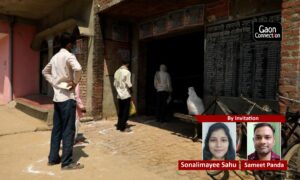The novel coronavirus disease (COVID-19) has crippled many sectors, and the sugarcane farmers of Uttar Pradesh are not an exception. Non-payment of cane dues and the crash in the price of milk has left many staring at a financial crisis. Usually, it takes six to 12 months for payment of sugarcane dues, but the additional income from sale of milk helped with household expenditure. Now, that is not possible. Adding to this is the pressure on farmers to return their Kisan Credit Card (KCC) loans with interest and penalty, payment of school and college fees and running the household. Unable to bear the stress, quite a few farmers have ended their lives.
The farmers are also unhappy with the minimal increase of Rs 10 to the existing Fair and Remunerative Price (FRP) of Rs 285 a quintal for sugarcane (one quintal = 100 kilogrammes). Many have told me they are unable to cope with the pressure. But there is hope for better days.
Cane dues and the courts
To understand why I am hopeful, it is important to brush up on the history of cases filed and judgements given around sugarcane dues. Each of these cases has a bearing on the final outcome.
Till 1995-1996, sugar mills took delivery of sugarcane and did not pay the cane dues for years, but after the 1997 Supreme Court judgment directing payment of Rs 29 crore along with interest to cane-growers, the mills began clearing dues earlier as they knew they would have to pay interest to farmers beyond 14 days. However, despite the direction, Agauta Sugar Mill in Bulandshahr paid cane dues of over Rs 25 crore but not the interest charges. Since the State then controlled 80 cooperative and corporation mills, it did not comply with orders to pay interest even though, under Court orders, sugar stocks equalling the interest amount were already in the custody of the District Magistrate (DM).
Twelve years after I filed a contempt petition against the Cane Commissioner and mill owners in 1997, farmers supplying to Agauta were paid the interest in 2009.
In the sugar season of 1996-1997, the Allahabad High Court, in its order dated December 11, 1996, declared the State Advised Price (SAP) as illegal and directed payment for cane at the Statutory Minimum Price (SMP), which was one-third less than the SAP, fixed by the India government. When the state government appeal before the Supreme Court was dismissed, I filed a writ petition — WP 2086 of 1997 — before the Lucknow Bench of the High Court. In its order dated February 1, 1999, the court upheld the SAP as a valid price and also directed the Cane Commissioner to ensure that farmers are paid interest for late payment beyond 14 days.
Since the interest was not paid, I filed a writ petition in the High Court for payment of interest on delayed payment from 1996-1997 to the date of disposal of the petition, which is still pending. Once the interest was paid by Agauta Sugar Mill to canegrowers, I filed fresh petitions for payment of cane dues with interest.
In 2014-2015, the High Court directed the Cane Commissioner to ensure payment of interest from 2011 to 2015, amounting to about Rs 2,000 crore, but the then Samajwadi government through two cabinet decisions in 2015 and 2016 waived the interest to be paid by mills for three years. The High Court dismissed the cabinet decisions and directed the Cane Commissioner in the Yogi Adityanath government to decide the matter afresh within four months in the light of my argument that when sugarcane dues are not paid on time, cane growers have to pay interest and penalties for delay in payment of loans taken by them to raise the sugarcane crop. In such a case, how can the state, in a one-sided approach, waive the interest to be paid by mills to farmers?
The issue of interest
The Cane Commissioner failed to decide the interest issue for almost two years, but after I filed a contempt petition and he was warned by the Court of imprisonment. He filed an affidavit in 2019 that for the years from 2012 to 2015, the mills making a profit will pay 12 per cent interest and those incurring losses will pay seven per cent interest per annum to cane growers. There was no mention of either waiver or payment of interest for the season 2011-2012, a period that was part of the court order. I filed objections that interest has to be paid at the rate of 15 per cent as per law and also filed a petition before the Supreme Court challenging the power of the State/Cane Commissioner to waive or reduce the interest amount that has to be quantified at the rate of 15 per cent per annum. A notice was issued by the Supreme Court in 2019.
Once the Cane Commissioner filed his affidavit regarding payment of interest, the money should have been paid immediately, but the state and the mills took advantage of the non-operation of the courts due to the long strike period and, later, the pandemic. The courts will start functioning in a few days and then the Cane Commissioner will have to explain the reason for the delay in payment of interest.
Once the Supreme Court decides that the Cane Commissioner does not have the power to waive or reduce the interest amount, the mill owners, including the state, will not delay the payment even for a day beyond 14 days as they will have to pay interest at the rate of 15 per cent.
These facts have been explained in detail and farmers have been told to keep faith and not break down and think of ending their lives. The payment of interest is final and cannot be avoided at any cost. The worst is over and cane growers are likely to get deferred payment of Rs one lakh an acre if interest is paid at the rate of 15 per cent per annum from 1996, and if it is paid from 2011-2012 to 2019-2020, it will not be less than Rs 50,000 an acre.
Recovery certificates
Farmers are also perturbed by the recovery certificates issued by the administration against cane farmers for non-payment of loans taken by them to raise sugarcane. Every farmer must know that the Lucknow Bench of the Allahabad High Court in its order dated August 6, 2012, in the case of Rashtriya Kisan Mazdoor Sangathan, directed the State that no recovery certificate could be issued against the farmer till his cane dues along with interest was paid by mills.
That is why no recovery certificates have been issued for the last seven years and farmers have saved a minimum of 10 per cent collection charge. This year, the certificates have been issued though there is a stay order. My organisation has been helping with the withdrawal of the recovery certificates and cane growers must try to get the recovery certificate withdrawn.
Also, farmers need not be dejected by the Rs 10 increase in the FRP as we are entitled to SAP as per the judgement of the Constitution Bench of the Supreme Court, which upheld the High Court decision. The state has the right to fix the SAP, which is a valid price, and if farmers were to get the FRP, last year they would have got Rs 275 and not Rs 325. A few years ago, the SAP was Rs 110 higher than the FRP.
So, better days are ahead, and let us hope that the SAP to be fixed in October will be Rs 450 a quintal, in accordance with the formula of 50 per cent over the cost of production as promised by the Prime Minister. And once the interest at the rate of 15 per cent per annum is paid on time, it will set the stage for the younger generation who have lost their jobs during demonetisation and the COVID-19 to return to agriculture for their livelihood. Once farmers get more purchasing power, the economy will also get a boost.
Sardar VM Singh is a farmer activist and convenor, Rashtriya Kisan Mazdoor Sangathan.


















